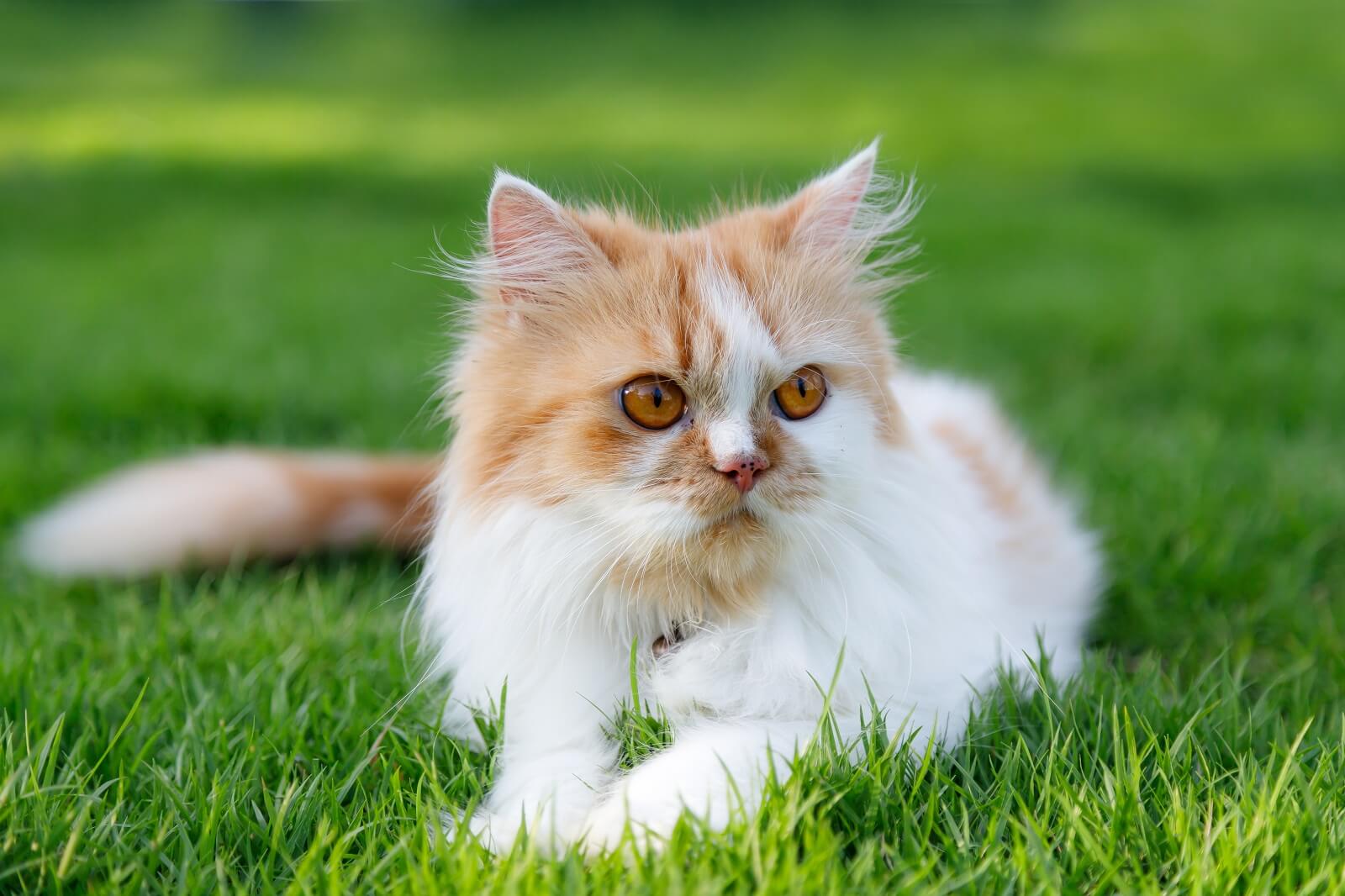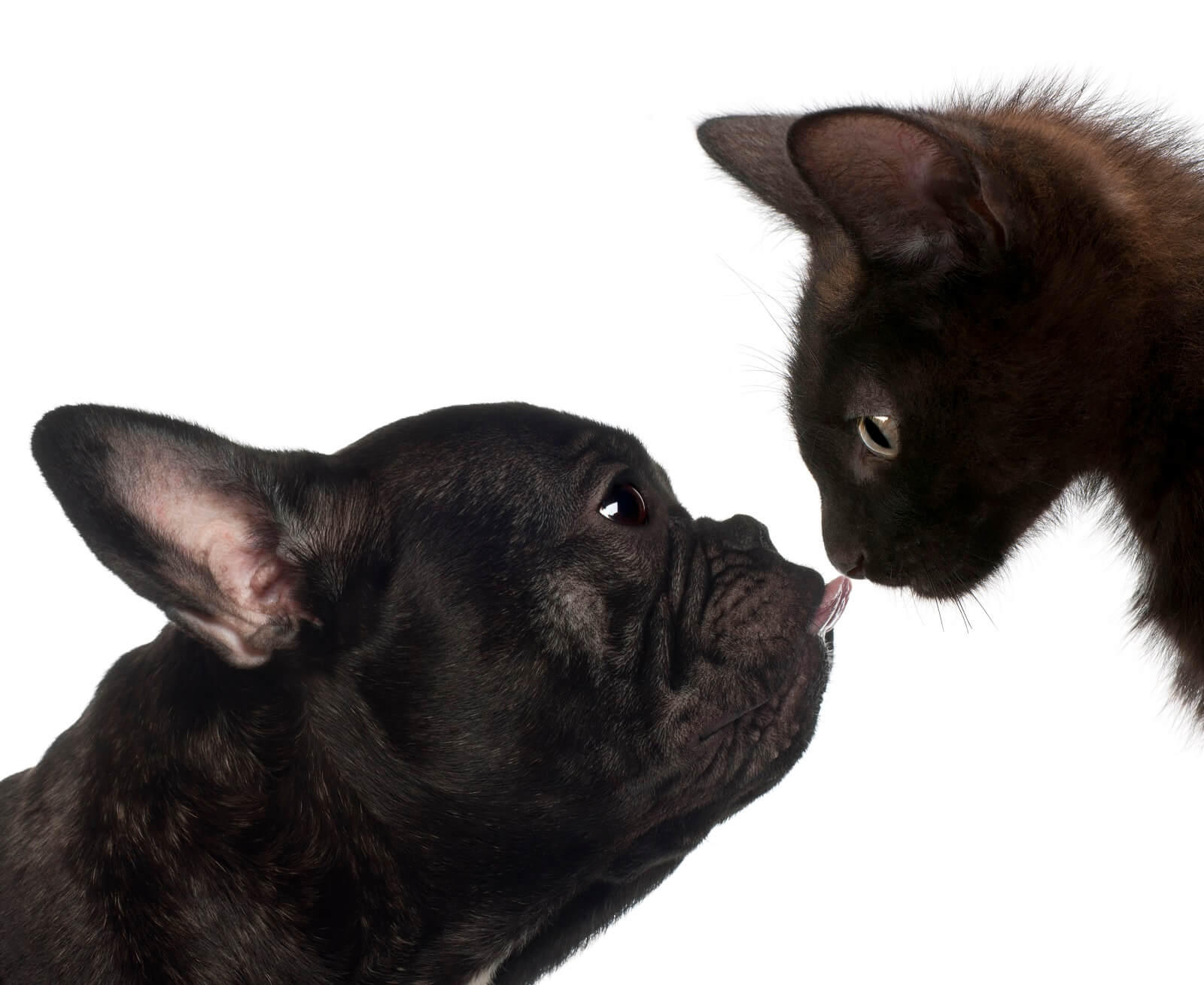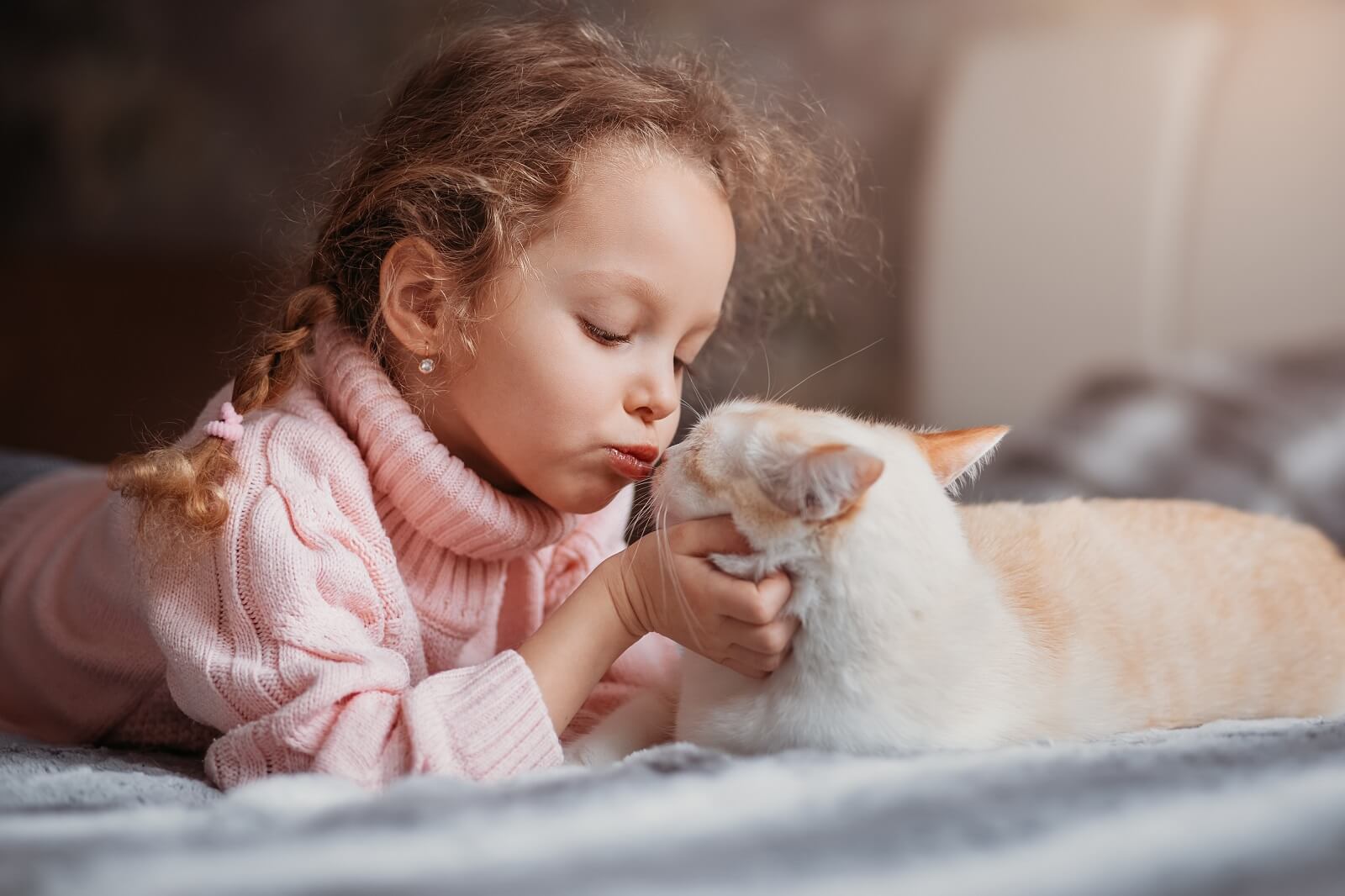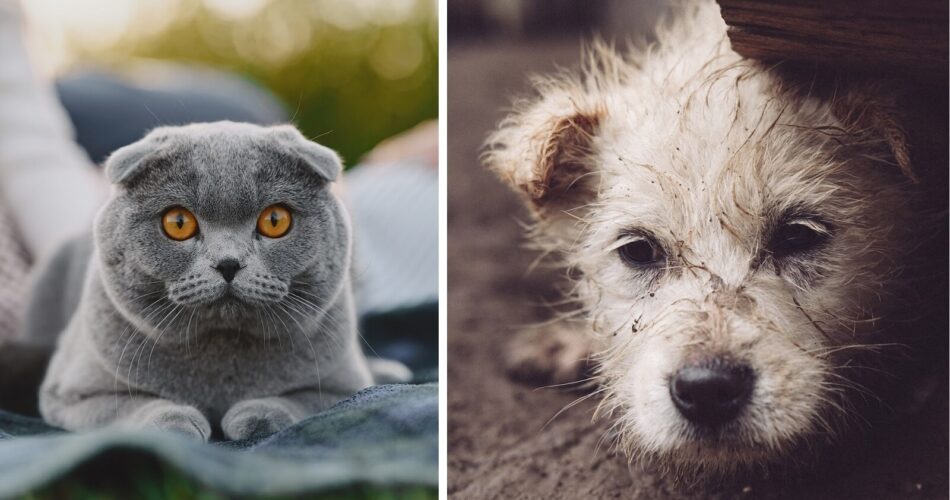As devoted pet parents, we enjoy showering our beloved canine and feline babies with kisses. We also want to be licked and kissed back. But are dog/cat kisses harmless? Are our pets’ mouths clean enough to have their saliva all over our faces? Do their mouths contain the same types of bacteria as ours? And finally, are cats cleaner than dogs?
We have all heard statements that the pets’ mouths are cleaner than ours. But is this really true? Read the article to find out the answers.
Why cats are cleaner than dogs?
Generally speaking, if you were wondering is a cat cleaner than a dog, the answer is yes. However, just because cats are more hygienic does not mean that cats are better than dogs.
Here are the top causes why cats are cleaner than dogs.
Cats are grooming hypochondriacs
It is not a secret that cats are meticulous in grooming and keeping their hygiene on a high level. In fact, cats spend most of their awake time on thorough grooming sessions. On the other hand, dogs are fond of gross activities like rolling in the dirt, splashing in ponds, or jumping in leave piles.
The cat’s tongue acts like a brush
If a cat has ever licked you, you know what we are talking about. The bristle-like tongue with sharp spikes acts like a brush that successfully removes accumulated dirt, detangles potential mats, and removes external parasites.
Cats are more flexible
There is not a place on her body; a cat cannot reach. One of the reasons why cats are cleaner than dogs is because they are capable of performing more thorough baths. Dogs are not so precise – they cannot easily reach every place of their bodies. And even if they could, they would not because they are not very diligent when it comes to personal hygiene.

The pet’s mouth vs. the human’s mouth
Comparing the pet’s mouth’s cleanliness to a human mouth is pretty much like comparing apples and oranges. Both pet’s and humans’ mouths contain a plethora of bacteria, and while it is true that some of those bacteria overlap, most of them are species-specific.
According to recent researches, the average pet’s mouth contains over 600 different types of bacteria. The human mouth has a similar number – 615. These are naturally occurring bacteria. However, these numbers can be much higher if the pet or the person picks up some additional bacteria from the environment.
So, as stated, pets have 600 different types of bacteria, and people have 615. If the number of bacteria types is enough to determine the cleanliness, then it can be assumed that the pet’s mouth is cleaner. However, this analogy is not correct. The number of bacteria does not influence the level of cleanliness. Whether or not something is clean depends much more on the type of bacteria. So, in this case, it is quality over quantity.
The cat’s mouth vs. the dog’s mouth
If you were wondering, are cat mouths cleaner than dogs, the answer is we do not know yet. There are studies suggesting the cat’s mouth is cleaner and has fewer types of bacteria. There are also studies suggesting the cat’s mouth bacteria types are worse than the dog’s. However, there is not a confirmed study that would undoubtedly solve the mystery about whose mouth is cleaner.
Regardless of whether you are a cat or a dog parent, if you enjoy exchanging kisses, it is best advised to be precautious – take care of your pet’s oral hygiene (regular brushing, mouthwashes), and have your trusted vet check the pet’s stool for parasites on a regular basis.

Are pet kisses dangerous?
We often assume that the pet’s mouth is cleaner than the average human’s mouth because we rarely swap diseases with our pets. For example, kissing your pet will not get you the flu, while kissing another human can infect you.
The reason why kissing your pet is safer than kissing another human is not because the pet’s mouth is cleaner. The set of germs found in the pet’s mouth is incompatible with the group of germs found in human mouths. The majority of bacteria found in the pet’s mouth do not have zoonotic potential, which means they are not infectious for humans.
However, just because pet kisses are not as dangerous as human kisses do not mean they are entirely harmless. Namely, there are situations in which the germs in the pet’s mouth can cause troubles for humans.
For example, pets fed raw diets are very likely to contract Salmonella. The Salmonella has zoonotic potential and can be transmitted to humans as well. Additionally, exchanging kisses with dogs prone to raiding the cat’s litter box or dogs used to picking up other dogs’ poops while walking is highly unadvisable.
Pet kisses are a big no-no for people with compromised immune systems. This includes the children, the pregnant, the old, and the individuals with immune-altering conditions.
On the other hand, it should be mentioned that your pet’s mouth is much cleaner than your kitchen sponge, the bottom of your purse, your telephone keypads, your refrigerator handle, and the makeup samples you frequently try on.

Conclusion
When comparing the cat’s mouth cleanliness to the dogs, things are a bit complicated. This is because our pets’ bacterial ecosystems are vastly different. That difference makes the comparison somewhat unreasonable.
Big, sloppy, and wet pet kisses are something we cannot resist as loving pet parents. However, it will be much easier for us to know our pets’ mouths are clean enough. If we cannot avoid receiving kisses from our pets, we need to practice good oral hygiene routines and discourage unwanted behaviors that may introduce additional bacteria to their mouths.
In a nutshell, when a pet kisses us, it deposits millions of unknown bacteria on our skins. On the bright side, in most cases, the majority of these bacteria are harmless.

